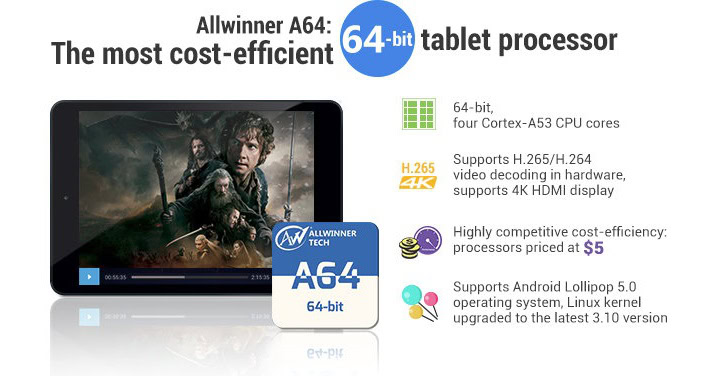Affiliate links on Android Authority may earn us a commission. Learn more.
Allwinner launches $5 quad-core 64-bit Cortex-A53 processor for tablets
Published onJanuary 8, 2015

Although we know that the A64 supports H2.65 at 4K, Allwinner did not release any information about which GPU it has used in the SoC. Allwinner has favored ARM’s Mali-400 GPU for its low-end offerings, while for its octa-core SoCs it has switched to PowerVR GPUs from Imagination. It will be interesting to see Allwinner’s choice for its 64-bit range.
Here is a summary of what we know about the A64:
- Quad-core 64-bit Cortex-A53 architecture
- H.265/H.264 video decoding in hardware, and supports HDMI 4K display
- Supports various DDR memory types, making the BOM cost more competitive
- Supports eMMC 5.0 for better IO performance and enhanced data throughput capacity
- Allwinner SmartColor display technology for more vivid and eye-pleasing visual experience
- ARM’s Trusted Firmware security support
- Supports Android 5.0 Lollipop and Linux kernel 3.10
As you can see the A64 supports Android 5.0 out-of-the-box. According to Allwinner’s press release, the company was the “first design house in China that distributed Android 5.0 Lollipop to its tablet lineup” and that it intends to continue this trend by releasing Android 5.0 for the A64 when the chip starts production.